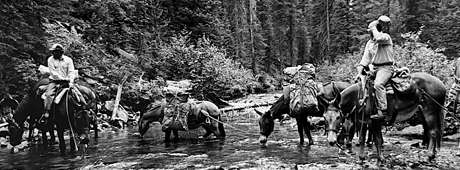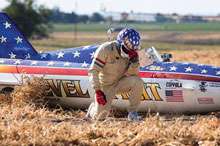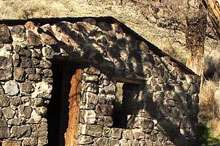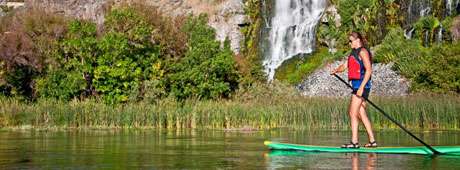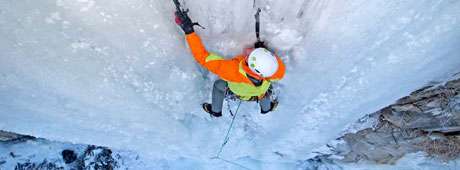On the river, we dip our paddles into the reservoir’s slack water and head upstream into a stiff breeze. We make good progress on our standup paddleboards (SUPs) and soon leave powerboats and fishermen behind. The canyon walls narrow and become steeper as the calm water gives way to the river current once again. On our left, a hundred-foot-tall waterfall pours over the canyon’s rim. Ahead of us lies a bizarre landscape of sculpted and bleached white rock. Because it’s late summer and a dry year, the once mighty Snake River has been lowered by irrigation, reduced to a serpentine channel carved into the bedrock of the canyon. Still paddling upstream, we navigate the channel, which is barely ten feet across in places. Springs feed small cascades that spill over the rock walls and into the river. Finally, the river becomes so constricted that we pull the SUPs onto dry bedrock and consider our options.
As a photographer with an appreciation for adventure and nature, I spend much of my time exploring Idaho’s outdoor and recreational opportunities. Last year, as summer was quickly drawing to a close, I wanted to take advantage of one more weekend of warm weather. Figuring a river adventure would be a fitting close to the season, I made a couple of calls, to my son Elijah and daughter Jessica. They were eager for an adventure and we agreed to explore the Snake River on SUPs. Our plan was to paddle thirty to forty miles of the Snake in south-central Idaho while visiting some of the more iconic attractions along its course. Continue reading →
This content is available for purchase. Please select from available options.
Purchase Only